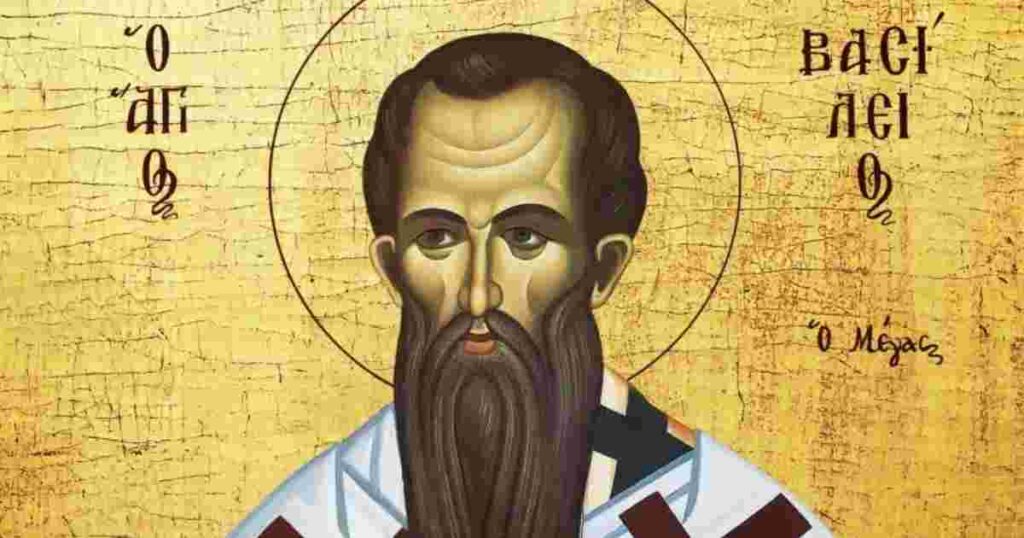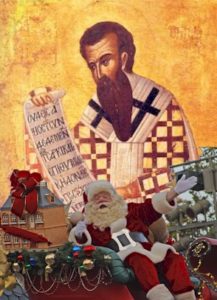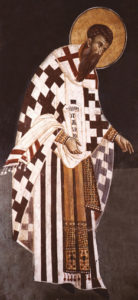
The story of Ayios Vasilis – according to Greek tradition.
“Ayios Vasilis is coming from Caesarea, holding a piece of paper and a pen!”

A beautiful scene that is repeated every year on New Year’s Eve and children wait eagerly to receive their presents from Ayios Vasilis.
Ayios Vasilis is the children’s favorite saint because he always comes with a bag full of presents. Born in Caesarea of Kappadokia in 330AD, when Vasilis finished school, he went to Constantinople where he studied theology after which he went to Athens where he studied philosophy and rhetoric. When he returned to his country he retired to a monastery in Pontos where he studied the Bible and the ancient Greek writers.
Following the death of the Bishop of Caesarea, he was ordained Bishop and his fame for his charities was so great that people started imagining him as a good old man who comes round holding a bag full of goodies giving to the poor whatever they desired. He wrote many wise books so people always thought of him as a man of books with paper and a pen in hand. He was as simple as a child; he had a sensitive and loving soul and for this reason he became the favourite saint, the saint of presents, of love and joy.

Vasilis’s concern was not only for children. He created a whole complex of charitable foundations under the name “Vasiliada”. It included a house for the poor, a hospital, an orphanage, a maternity hospital, a school building, trade-learning schools and special buildings for doctors and nurses.
Every day Vasilis would visit a housing settlement in the country, which was built for the humble and suffering people, he would read the Bible to the residents and offer them encouragement. When starvation hit the area Vasilis gave his money and food to support the poor. When there was nothing left to give, he started going around reaching and inducing Christians to be charitable. So, both rich and poor people offered whatever they could.
Vasilis mostly enjoyed the time he spent visiting his “children” as he called the orphaned children. He was serving poor people until his death on the 1st of January 379 in “Vasiliada”.
In his honour, the 1st of January became, for children and adults, a day of love and joy for every child and every home.









